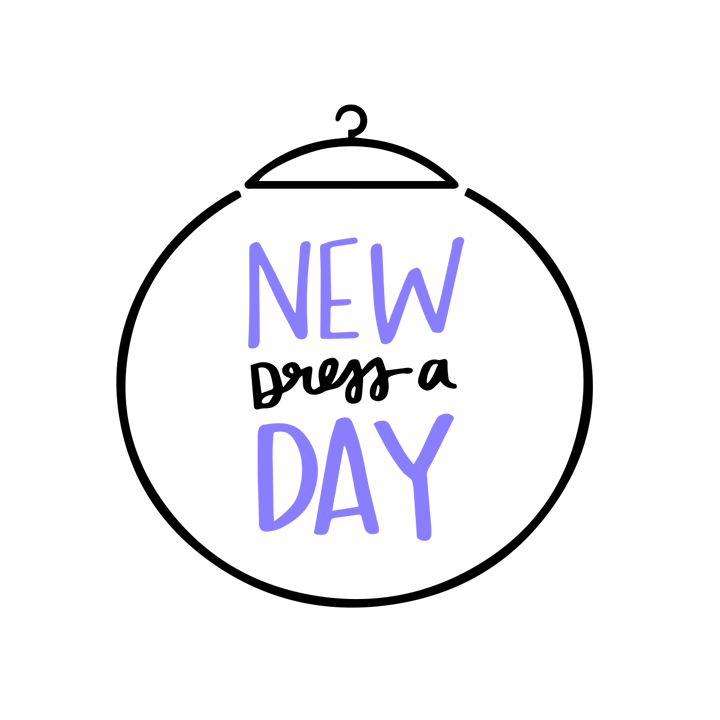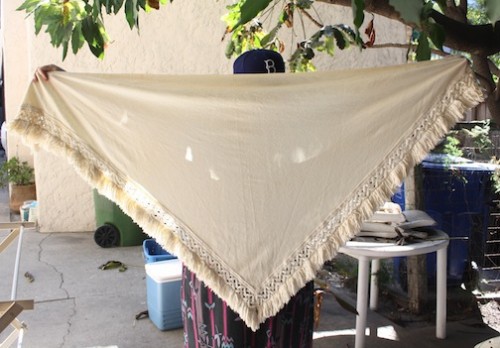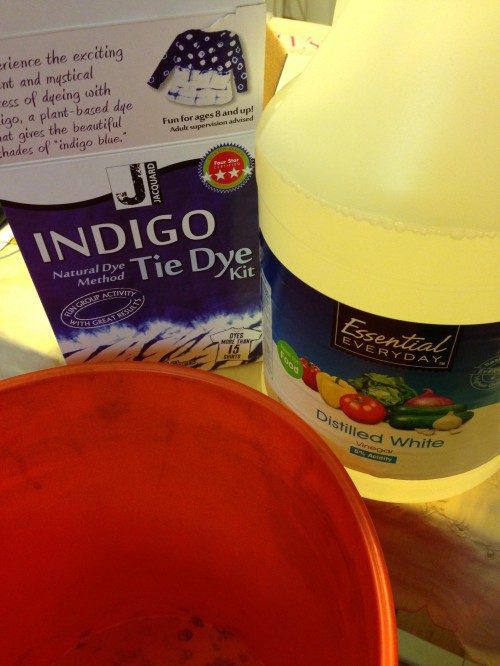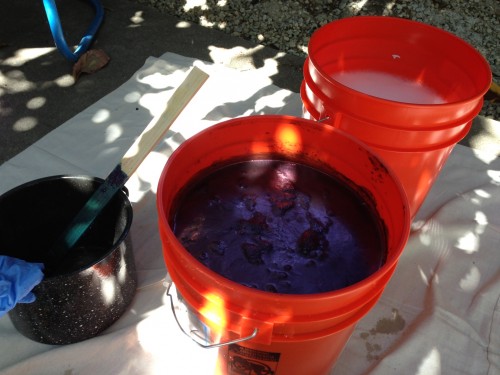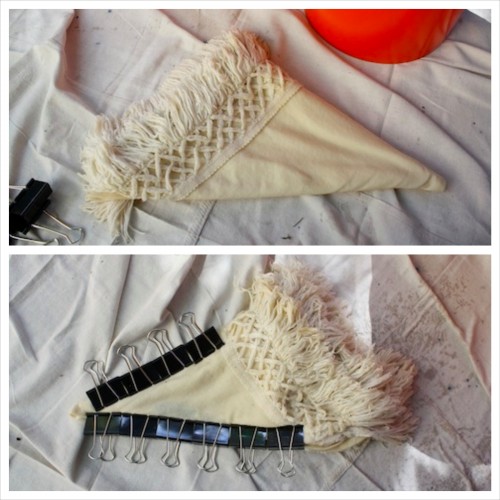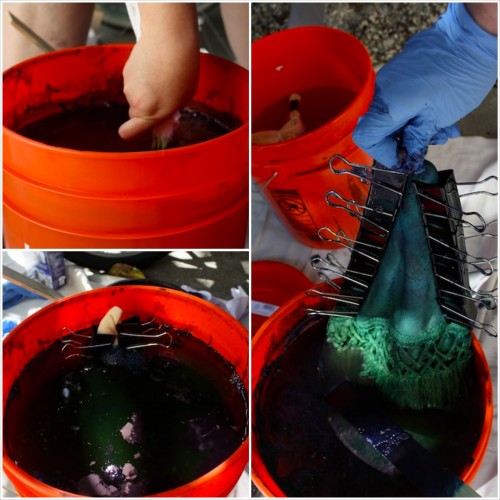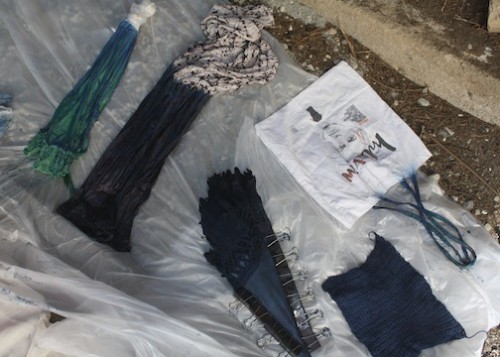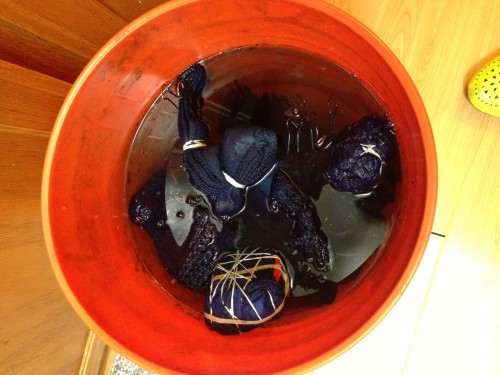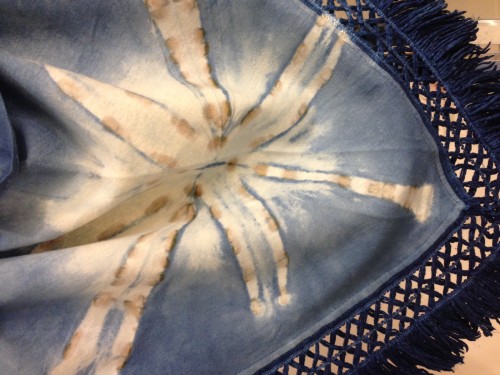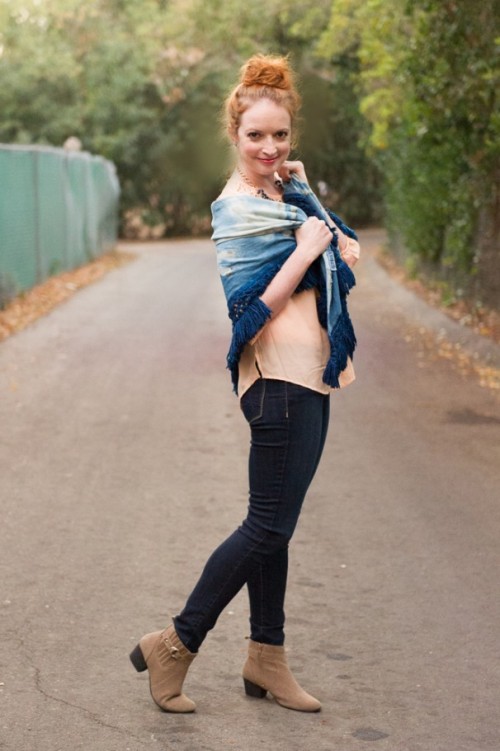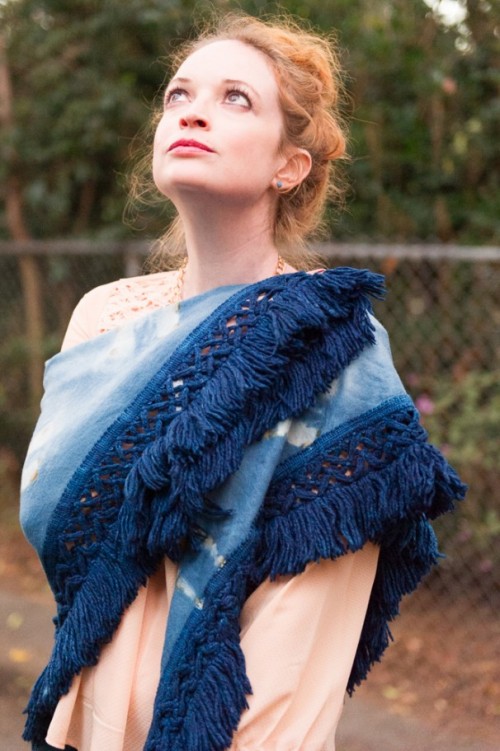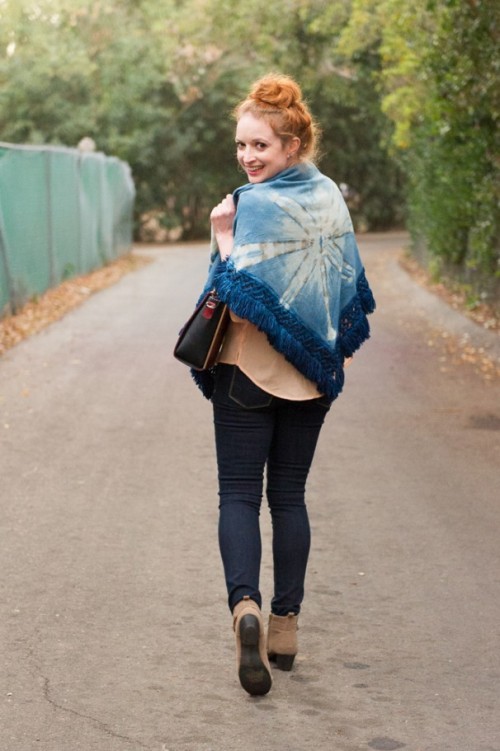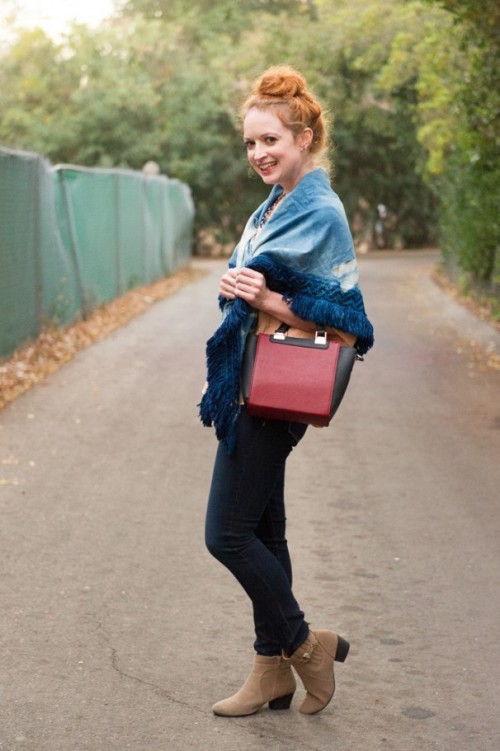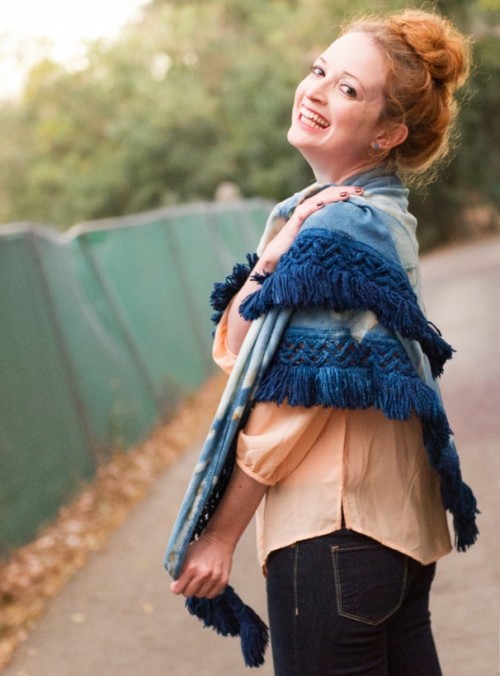Today's post is a fun one!! I got together with crafty pal KC of Make Shop Live and the co-founder of the Academy of Handmade (for those crafters out there, check it out - it's a super rad community of crafty people with a yearly awards show just like the Oscars! The nominations begin today, so head on over and cast a vote using the code ILoveHandmade) to work on some Indigo dyeing, something I've never done before. KC is a pro, so I got a master class. I started with this vintage shrug that I've held onto for years, just waiting for the perfect project to use it for. I think you're going to like the outcome!
To begin, you'll need a basic Indigo Dye Kit (here are two options - mini & large that can be found on Amazon for $12 and $17 respectively) as well as these supplies:
WHAT YOU'LL NEED:
(2) 5 gallon buckets with lid (The ones we used are from Home Depot.)
Plastic tarp / old shower curtain / some kind of covering for your workspace
Gloves (vinyl or latex)
Vinegar
Rubber bands, string, clothes pins, binder clips and other items that can be use to create resist patterns on the dyed item
Synthropol or phosphate free soap (Here's a cheap batch for $4 on Amazon)
The best pieces to dye will be items made out of natural fibers - 100% cotton, silk, hemp, wool, or rayon and should be pre-washed for optimum dyeing.
Prepare the Indigo bath following manufactures instructions. The Indigo will take around an hour to be ready for dyeing so in the meantime, set up your rinse bath. Using one of the buckets, get your rinse water started with warm water and a few drops of Synthropol. (The Synthropol bucket is in the back - fill it up about 2/3 full).
This mix is highly concentrated so use just one or two drops. Soak the items you will be dyeing for 2-3 minutes in this water bath to open up the fibers. This also helps reduce uneven dyeing or spotting. Wring out as much water as possible and then prepare any tie dye techniques using rubber bands or other resist instruments before adding to dye bath.
We wet the shawl, folded it up, and used binder clips as our resistant instruments. These happened to work best, but you can get creative and use washers or paper clips to wrap the fabric around.
Dye time! When dyeing, there are a few things to keep in mind. You want your fabric to move freely in the bucket without just resting on the bottom. This can cause spotting and uneven color if your item rests for an extended time on the bottom of the bucket. You will also want to be mindful that the Indigo process uses oxygen, so any extra oxygen introduced to the dye lessens the potency. You definitely do not want to over stir the bath and will want to push it around so that it is dyeing evenly without adding extra air instead. We used old wooden spoons and rulers to push the items around.
When the items leave the dye bath you will be able to see the oxygen process at work. The fabric changes color like magic! Indigo looks like a fluorescent yellow/green shade on the fabric once it comes out of the bath and then once it is exposed to air, you can see the process continue. The Indigo slowly changes the fabric from this green shade to a deep blue, the final color the piece will turn. This is one of the coolest parts of the whole process!
Your item may appear darker than the end result while drying. You can deepen the blue by introducing the item back into the dye bath and repeating the process as many times as you'd like to achieve a deeper color.
It's best to air dry the project completely before rinsing the color, usually overnight (24 hours is ideal). This really bonds the color as much as possible. Another trick to keep the color rich and deep, as well as prolonging fading, is to rinse with a mixture of water and vinegar. This 50/50 ratio of water to vinegar works really well in maintaining the color
(Note on Indigo: Indigo dye fades with wear and time. This is natural and one of the beautiful properties of this dye, so for this reason you may want to choose items that do not need heavy laundering to preserve color.)
Soak the fabric briefly in the vinegar water, then rinse in cold water until the water is clear. Follow up with a wash in Synthropol and you are good to go.
With my newly dyed shawl complete, I had a fun photo shoot with the lovely Shauna over at Penny Chic! (Head on over to Penny Chic to see more pics from the day!)
I love how bold the color turned out.
It's the best new cover-up to toss on top of a blouse when it's not super cold, but chilly enough to need an extra layer. Or, the perfect layer or big scarf to add on top of a thick jacket (I'm talkin' to you East Coasters/Mid-Westerners/other colder spots outside of the US that don't have these Southern California temperatures at the moment!)
We paired the shawl with a gorge Boho top, statement necklace, and Denizen by Levi's jeans all from Target, a pair of ankle boots by Cotton On, and the most fun Sole Society purse.
It's the cutest date night ensemble!!
Thank you to the fabulous Penny Chic team and Shideh Miller for photographing this chic and cozy ensemble!
Any of you guys have experience with Indigo dyeing? I'd love to hear your stories!
